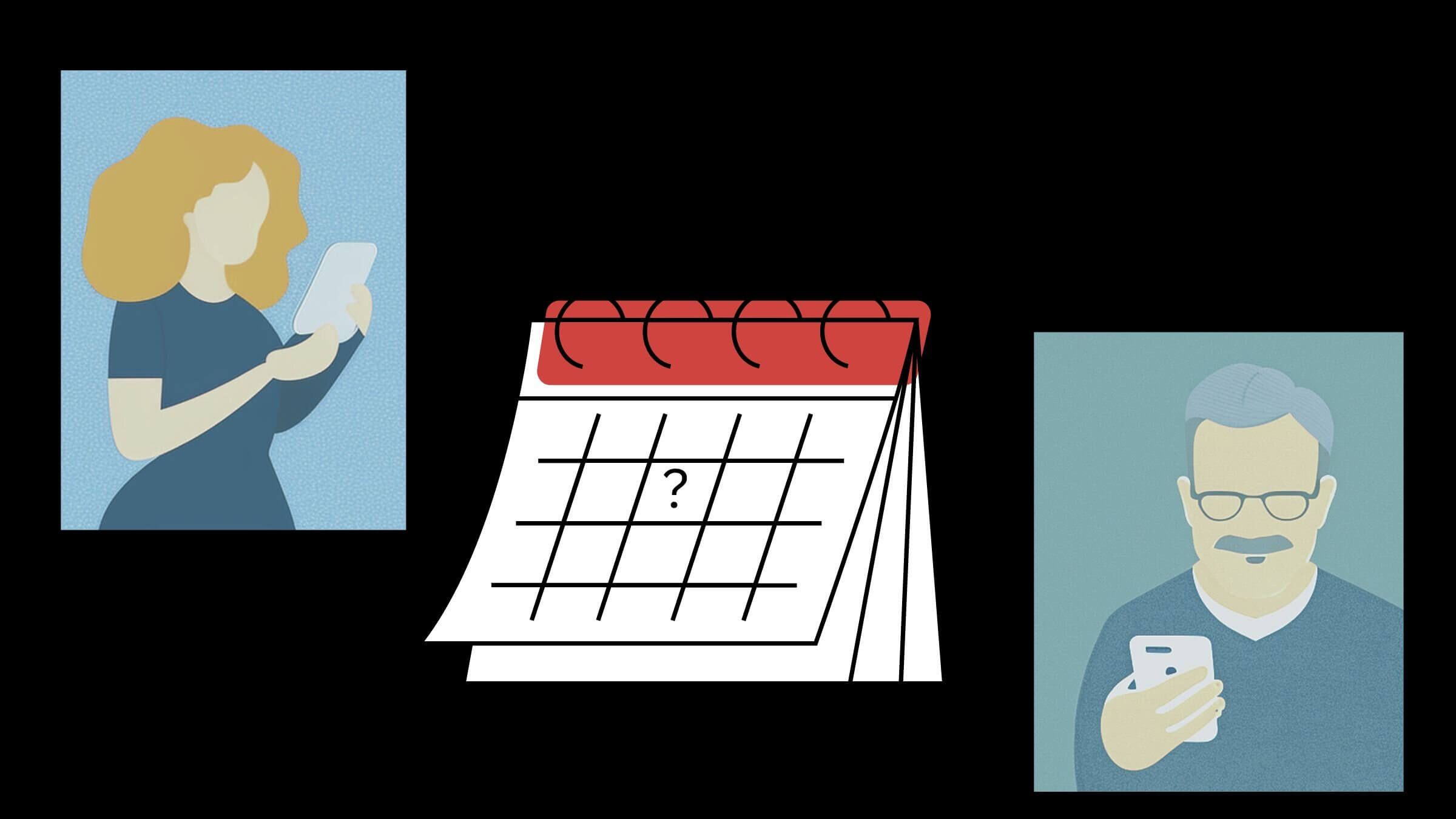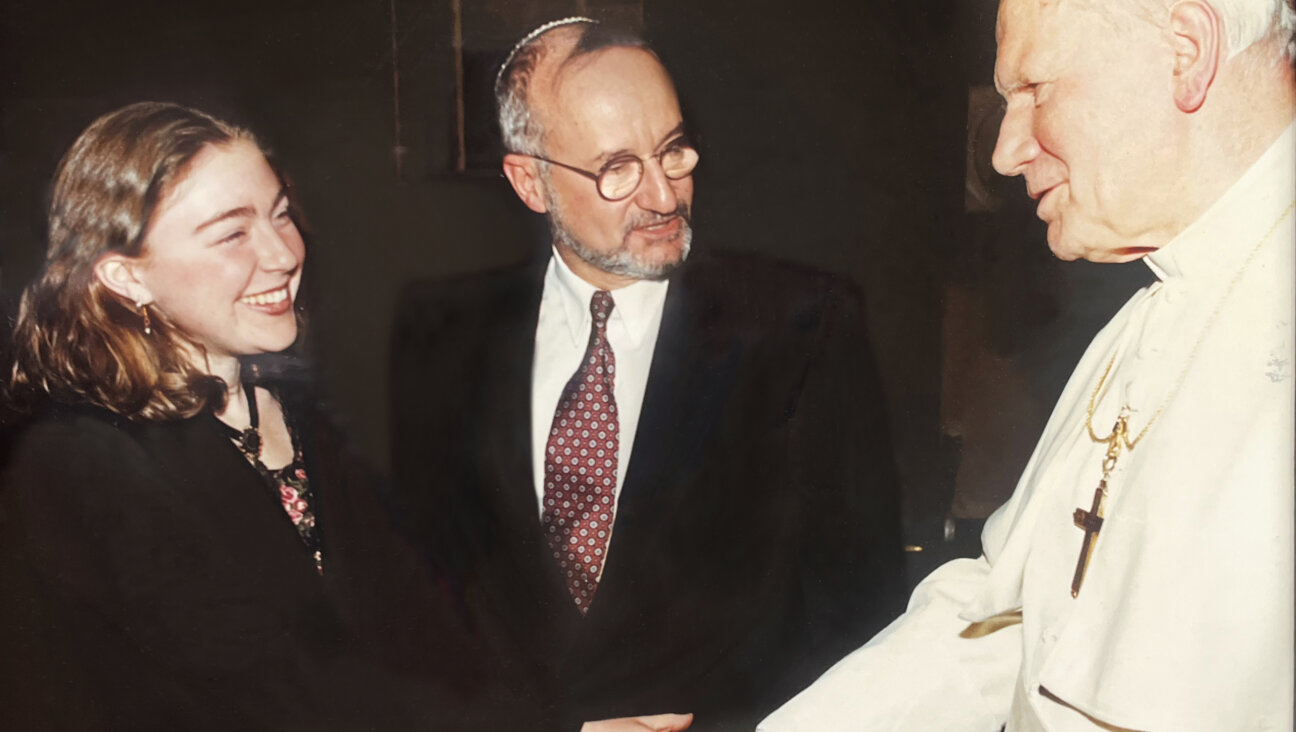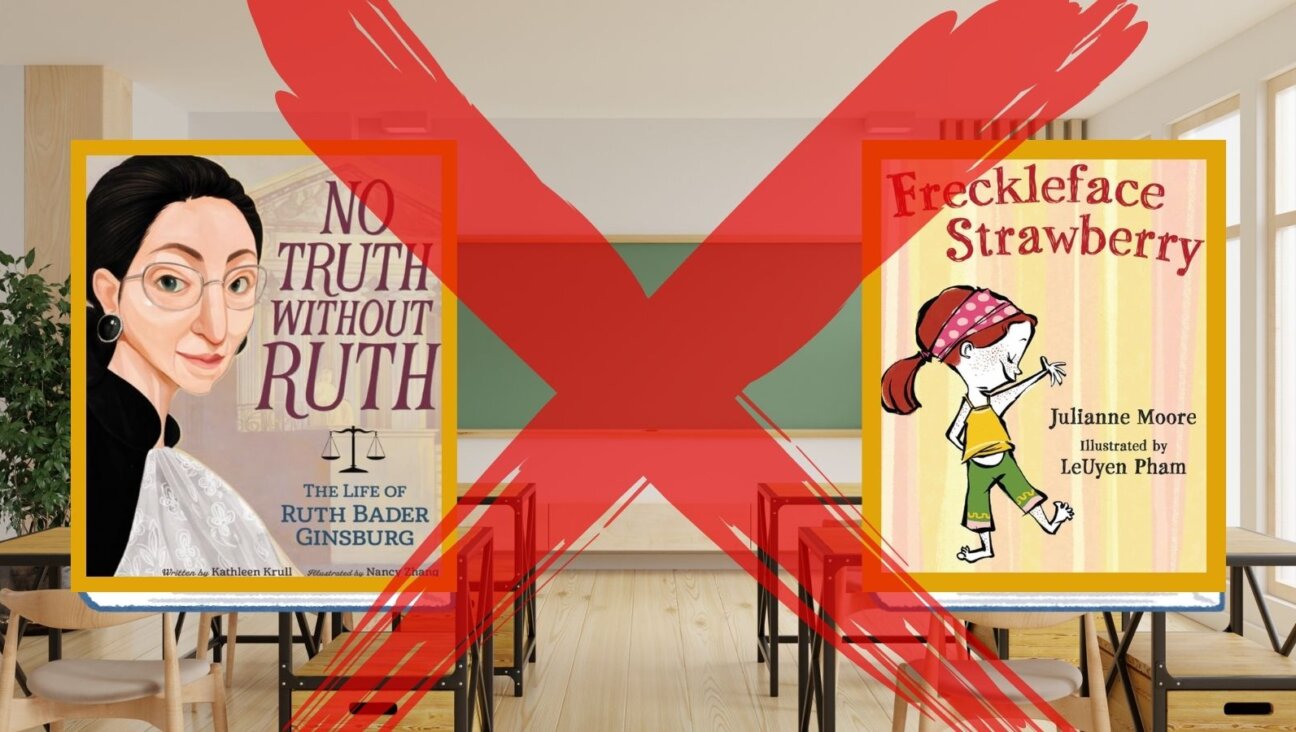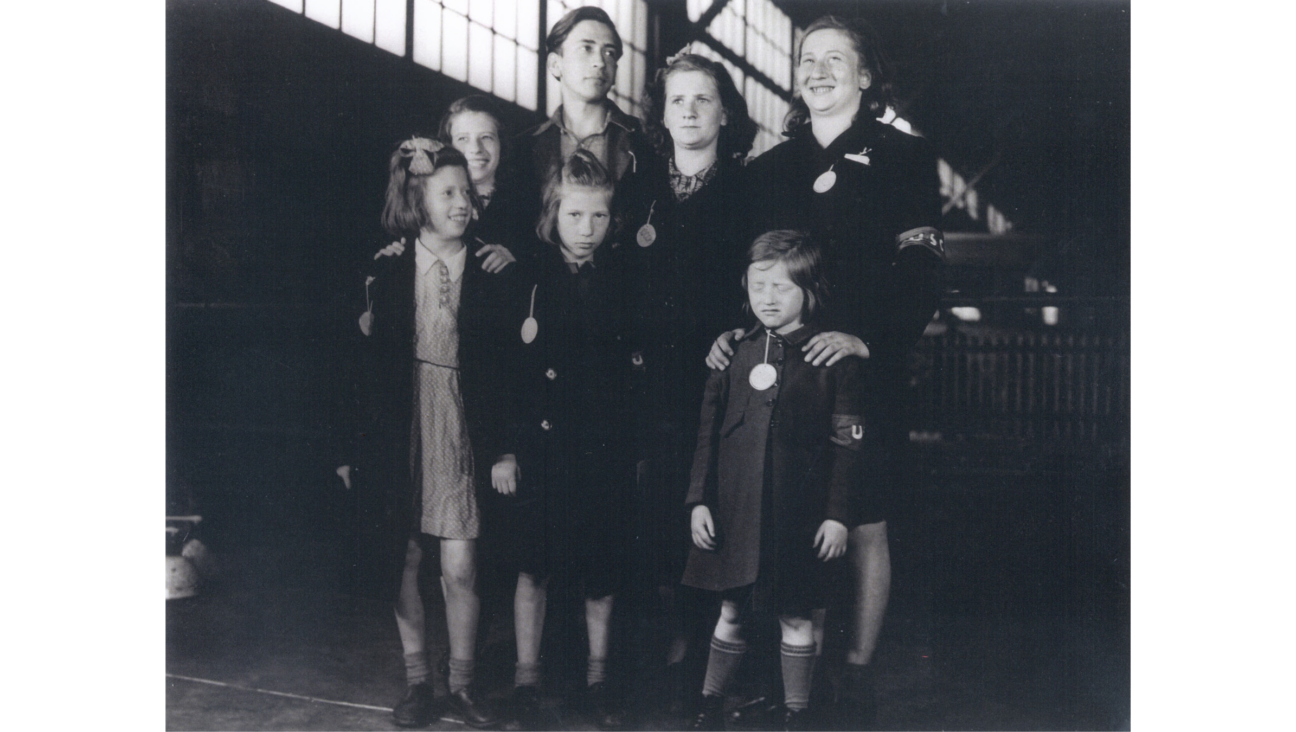BINTEL BRIEFHow many times do you ask someone out before you give up?
Bintel turns to the holiday known as the Jewish Valentine’s Day for guidance

How many times do you ask someone out before you give up? Graphic by Beth Harpaz/Canva
The Forward has been solving reader dilemmas since 1906 in A Bintel Brief, Yiddish for a bundle of letters. Send us your quandaries about Jewish life, love, family, friends or work via email, Twitter or this form.
Dear Bintel,
I am a 63-years-young artist living in Baltimore. I am relatively new here and eager to find new friends. I went to a friend’s gallery opening and was happy to see familiar faces and schmooze. The whole time I was there, I chatted with a nice-looking guy who turned out to be Jewish. After the event, we friended each other on Facebook. In a private message, I asked if he would like to meet for a drink some evening. He said he was leaving soon for vacation and would like to meet when he returns. I reached out again after more than two weeks. He said he was back in town for a minute and leaving again and would be in touch upon his return.
Now I know he is back in Baltimore. Should I go for it and reach out again, or wait for him to contact me? I am interested in him because we had a fun conversation, he likes art, he knows some of my artist friends, and he lives near me. What do you suggest?
Signed,
Ms. Incognito
Dear Ms. Incognito:
Valentine’s Day is right around the corner. Obviously that’s a Christian holiday, but did you know there’s a Jewish Valentine’s Day? It’s called Tu B’Av, and it was originally mentioned in the Mishnah as a time when “the daughters of Jerusalem go out dressed in white and dance in the vineyards” hoping to find a mate — like a Sadie Hawkins dance, where girls pick the guys instead of the old-fashioned vice-versa.
In Eastern Europe before World War II, Tu B’Av was more about female solidarity: Girls went on a nighttime hike together, danced around a campfire and reveled in their camaraderie.
Today in Israel, Tu B’Av celebrates romance and love, matchmaking and proposals. And unlike Valentine’s Day, Tu B’Av is celebrated midsummer, not midwinter. But let’s not get hung up on details. Take a hint from the holiday and call the guy. Three times a charm, right? Maybe you caught him at a busy time of year; sometimes people get overbooked and have to turn down invitations they regret not accepting.
But how about an invitation to do something that’s less romantic than a drink in the evening? Maybe a cafe lunch, Sunday brunch, or just coffee? How about a tourist-type outing: exploring Baltimore’s historic Fells Point neighborhood, visiting Edgar Allen Poe’s house, or seeing the latest show at the Baltimore Museum of Art? If there’s another gallery opening coming up, ask if he’ll be there. Sounds like you have mutual friends; find out whether he’s attached (and maybe even whether he’s straight?).
If you get a third brush-off, I’d let it go. But that doesn’t mean you should give up on dating altogether. Keep going to those art openings, and just like the girls did on Tu B’Av when they walked in the woods together, look to your female friends for camaraderie. Let them know you want to socialize and take the lead by organizing a girls’ day out. You never know where that might lead; maybe if you put the word out that you’re looking to meet someone, you’ll get introduced to a nice guy or invited to some parties.
I assume you’ve considered online dating and that you know about sites like JDate where you can meet Jewish singles in your age range. A middle-aged friend of mine found a loving husband through Match.com; she did it by having a casual lunch with a different person every day, figuring eventually she’d meet Mr. Right. And she did! Jewish organizations often host mixers by age range, too.
One final idea: Purim’s right around the corner. Find the best costume party in Baltimore — one that’s not just for kids. Get a friend to dress up and go with you. I have a feeling you’d make a great Queen Esther.
Signed,
Bintel
A message from our Publisher & CEO Rachel Fishman Feddersen

I hope you appreciated this article. Before you go, I’d like to ask you to please support the Forward’s award-winning, nonprofit journalism so that we can be prepared for whatever news 2025 brings.
At a time when other newsrooms are closing or cutting back, the Forward has removed its paywall and invested additional resources to report on the ground from Israel and around the U.S. on the impact of the war, rising antisemitism and polarized discourse.
Readers like you make it all possible. Support our work by becoming a Forward Member and connect with our journalism and your community.
— Rachel Fishman Feddersen, Publisher and CEO






























